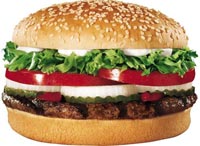Sure, you’ve heard of Anne Frank. But what about Hannah Senesh?
In 1944, Hungarian-born poet Hannah Senesh was safe in Palestine, working the land with a group of young Zionist immigrants, most of whom had fled European persecution. But when word of Hitler’s Final Solution reached Senesh and her friends, a small group of them volunteered to go back and rescue Jews. They parachuted back into Hungary, where Hannah was captured, imprisoned, tortured and eventually executed for treason. Her mother, who had been unable to leave Hungary, was a witness to her daughter’s heroism; after Hannah’s execution and her own subsequent deportation on a death march, Hannah’s mother escaped, and lived to tell both her and her daughter’s stories. Many of Hannah’s writings survived the war and have become part of the canon of beloved Israeli literature.
Now this relatively unknown story gains some visibility with “Blessed is the Match,” a new documentary directed by Roberta Grossman, an experienced and award-winning filmmaker. The film (watch the trailer) has some Hollywood weight to it, with “Friends” creator Marta Kauffman as executive producer (“Weeds” creator Jenji Kohan is also listed in the credits). The remarkably filmed picture also features the voices of Joan Allen and Alona Tal, giving voice to the diaried words of Catherine and Hannah Senesh.
I attended a screening of the film this week in Los Angeles, which featured a Q & A with Grossman and Kauffman afterwards. During the discussion, the moderator called the film “a love letter from a mother to a daughter.” Grossman agreed that she didn’t see it as a Holocaust story, more as a mother-daughter story, and Kauffman called it “a gift to all our daughters.” Discussion also centered on the fact that there seems to be a Holocaust movie trend nowadays, from Tom Cruise’s Hitler assassination attempt film “Valkyrie” to Nazi-trials in “The Reader,” and from Jewish partisan movements in “Defiance” to the upcoming and highly anticipated Tarantino remake of “Inglourious Basterds” [sic]. The filmmakers attribute this to the passage of time. “First there were films about the enormity [of the Holocaust], then about individuals, then about resistance,” Grossman says, noting that there are “all kinds of resistance: finding a way to feed your children, doing an act of kindness in a concentration camp is an act of resistance.”
Kauffman shares her son’s comment: “It’s important to show the world that there are badass Jews out there.”
When asked to comment about releasing the film in the shadow of the conflict in Israel and Gaza, its executive producer said that “it gives a fair explanation of why the Jews needed Palestine, which is something that especially the younger generation is not aware of, the need for a safe place.”
“Beyond that,” she concluded, “it tells the story of a mother and a daughter.”
Check out the trailer for “Blessed is the Match.”
For screening locations and times, see the film’s website.


